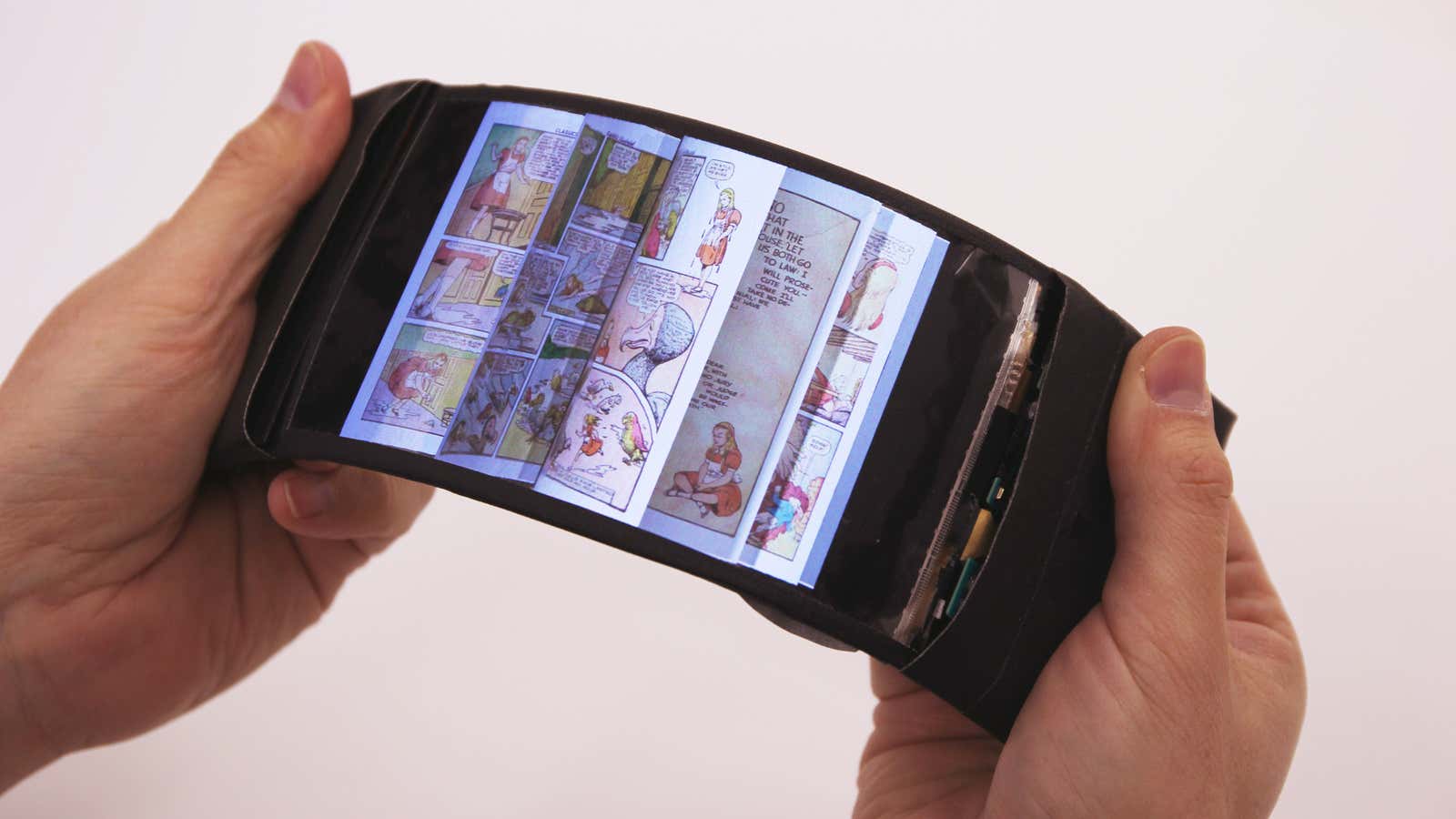For years, we’ve been tantalized by the prospect of electronic devices that are as malleable as paper. There’s something about the idea of unfurling a phone as we would a newspaper that seems eminently futuristic. Save for a few curved edges on TV screens and smartphones, we’ve yet to see any actual devices that can properly bend. But new research out of Queen’s University in Canada suggests bendy phones are right around the corner.
A team of researchers at the university’s Human Media Lab have converted a flexible LG screen into a working prototype of a bendy phone. Rather than just being a nifty proof-of-concept that you can actually build a flexible phone, the researchers actually gave the bendiness a function: It acts as an input, and depending on how much you bend the screen, the phone will do different things. In the examples, bending the phone could turn the pages in a book, and if you bend it more heavily, it’ll whip through the pages faster, similar to cracking open an actual book and thumbing through it.
The demonstration also shows how the bendiness could be used in games. One researcher played one of the Angry Birds games, which involves very accurately slinging birds at pigs, and used the amount of bend to more accurately gauge the trajectory of their avian attack. The phone also worked as a regular phone, running a modified version of Android.
While this is just a prototype, it shows that we’re potentially not too far away from digital devices that are more organically designed. Humans are soft, squishy and (sometimes) flexible, so there’s some sense in making devices that act more like we do. Our clothes are generally flexible and conform to our bodies, so there’s no reason to believe that our electronics shouldn’t one day either.
LG and others are working on devices with screens that you can completely roll up or fold out, which could allow us to carry much larger screens with us in small places (imagine being able to take your home flatscreen TV with you in your backpack). Google is working on flexible electronics built into clothes, and new technology is being developed by companies like IBM to allow the circuits in our devices to be flexible. (Even in Queen’s University’s example, the screen itself might be flexible, but the majority of the electronics are still rigid and housed around the sides of the screen.)
But it remains to be seen whether flexibility will be key to the future of electronics, at least from a usability perspective: In this demonstration, it seems like it would still actually be easier to turn a digital book’s pages accurately just using a finger, as you can on any modern smartphone.




